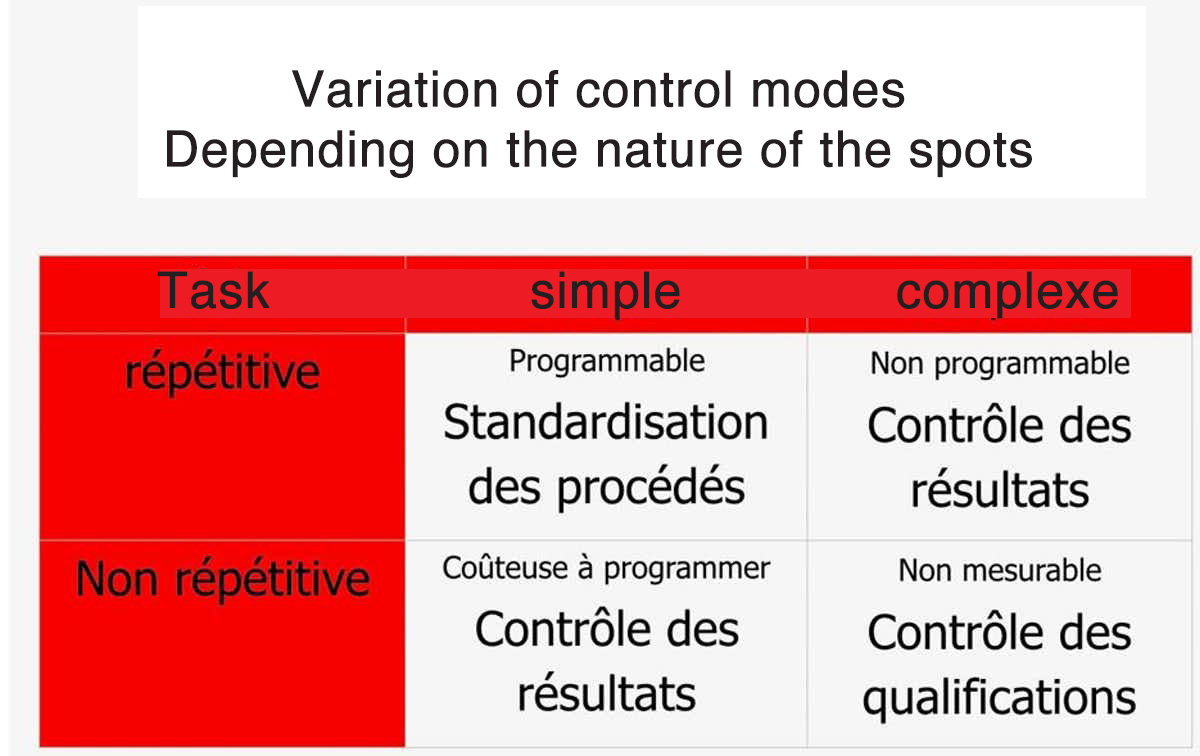
The future multi- annual research programming law ( LPPR ) is causing serious concern in the world of higher education. On the one hand, researchers , dissatisfied with the current situation, are asking for more resources, while rejecting the principle of a selective, therefore unequal, distribution of resources – selective distribution which, in fact, already exists.
On the other, research administrators and policy makers are aware of the inadequacies of the present situation and are convinced that investment in research must be increased, while fearing that it will be wasted or unnecessarily sprinkled in a research that would be bushy, opaque, fragmented and very unevenly productive.
In this context, it may be useful to return to the foundations of one of the major disciplines of classical management: management control . We will ask ourselves on this occasion whether these bases of management imported from the United States that we strive to imitate were really read and understood.
Self evaluation
Management control, in English, “management accounting” or, more precisely, “management control” aims to drive the performance of a company. This discipline requires that all components of the company know the contribution they must make and that everyone makes all the efforts necessary to deliver it.
It involves equipping each department of the company with a sort of dashboard that allows it to know at any time whether the expected results will be achieved. The three criteria for self-assessment are:
- effectiveness: will I achieve the expected results on the planned date?
- efficiency: will I achieve results using resources as sparingly as possible?
- relevance: are the results I pursue consistent with those of other departments and with the company’s overall strategy?
Each team can thus largely govern itself, since it has management autonomy which makes it responsible for achieving the objectives that it has set, negotiated, or that has been imposed on it. These relatively autonomous entities struggle to achieve their objectives because they hope for or fear the evaluations of the authorities on which they depend: hierarchical superiors, principals, investors, customers.
In this context, good compliance with the criteria of costs, deadlines and quality is important for each team, because it conditions the allocation of bonuses and promotions, but also the obtaining for the collective of new orders, new projects, new investments.
There is no doubt that certain administrators are seeking to transpose this type of control and incentive mechanism to the research world. However, successive attempts initiated over twenty years ago in the French administrative system have led to disappointing results.
Observers agree that researchers undergo a number of finicky checks that waste their time. Resources are distributed arbitrarily, and lack of autonomy can lead to discouragement.
Complex activities
So let’s go back to one of the important pages of the introductory course in management control, the one that marks the limits and conditions of employment of performance management. In textbooks, it often takes the form of the following table, which reminds us that the methods of work control must be adapted to the type of activity:

A simple and repetitive task can be programmed using a technical device or a procedure. This programming is enough to obtain a regular and predictable result: no need to add other constraints.
Complex tasks involving a good deal of initiative or simple but non-repetitive tasks are not programmable. To want to standardize them at all costs, to lock them in the shackles of a procedure would be a mistake: it is necessary to leave initiative and responsibility to those who make them, and to evaluate them only on the obtained result.
The most difficult case remains: that of the box at the bottom right of the table, which corresponds to activities that are both complex and non-repetitive. These activities have the formidable property for managers of being neither programmable nor measurable. This is typically the case for most of the activities in the worlds of research, art and radical technical innovations.
In these areas, there is no strict correlation between the amount of expenditure and the result obtained, nor a priori definition of the result to be achieved, nor any foreseeable date for obtaining the result. Any procedure is a waste of time and a straitjacket which risks obstructing the necessary deviations. Any attempt to define precisely the result to be achieved is nonsense.
Our basic table offers administrators a modest and reasonable solution for managing the activities falling under this fourth box: control by qualifications.
When an administrator must allocate resources for carrying out complex and non-repetitive activities such as scientific research, he should not seek to schedule these activities. He should admit that he does not know how to establish figures in advance to verify their proper execution.
He can only strive to choose the right people through a rigorous selection process, considered valid by the best professionals, and legitimate in their eyes. It is up to him to honor and support the people who have been chosen, to trust them and to give them the means they need to work.
Long-term evaluation
The fundamental management act is therefore the act of recruitment, and our administrator only has two possible tasks left. The first is to help researchers , that is to listen to their needs and provide them with the means to work without wasting time or unnecessary distraction, by carefully maintaining their morale and their passion for research. , even if it means circumventing administrative measures and procedures which would be obstacles.
The second is to observe the results produced over a relatively long period (five years), and on the merits. At the end of this period, resources and support will be maintained, increased, reduced or eliminated.
This a posteriori selection is the only reasonable way to avoid spreading and wasting the funds allocated to research. It is essential when we want to admit that to obtain major results, we must focus resources on the most creative and daring teams.
Given the complexity and rapid evolution of research, it is obvious that administrators cannot and must not establish by themselves the classification of researchers – classification on the merits rather than on the number of publications or the number of contracts. signed. These modest administrators should therefore rely on peer judgment. However, since they have a research budget to administer, it would be legitimate for them to impose quotas: a certain percentage of the teams present, those which would have been classified as the least productive would lose all or part of their funding.
This a posteriori selection should take place over a long period of time, distinguishing itself from the system of acquired advantages and situation rents. It would also be profoundly different from the mad ambition to define from the start which should be excellent, and to bet everything on this predefined elite.
Roles to review
A young researcher should not have to squander his talent and energy to respond to calls for tenders, to endlessly beg for grants, to waste his time in multiple administrative meetings.
Admitted to the world of research after a rigorous selection process, all young people should have a chance to develop a project. The means automatically allocated should be adapted to the specifics of their project and be the subject of direct negotiation between researchers and employing institution.
The selection will ultimately be inevitable, but it should not relate to advancement in the administrative hierarchy of the statutes, but to the maintenance, increase, decrease or elimination of the resources allocated to a team.
Today, researchers are left to assess each other, but only on the question of who will be promoted and advance in rank, while research administrators largely control the distribution of funding and resources .
This division of roles should be reversed: researchers should discuss among themselves the allocation of research resources. It is up to administrators to find and make available the necessary funding, to take note of the proven results, and to recognize them by promotions, titles and honors
Authour Bio: Michel Villette is Professor of Sociology, Researcher at the Maurice Halbwachs Center ENS / EHESS / CNRS, Professor of Sociology at the AgroParisTech – Université Paris-Saclay
